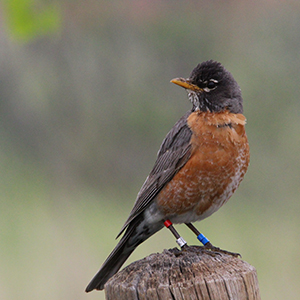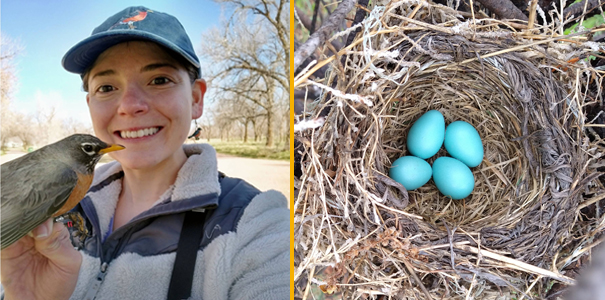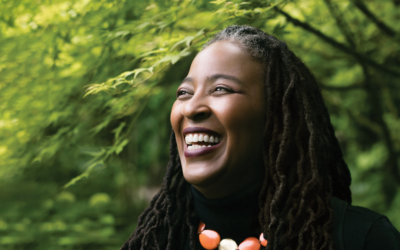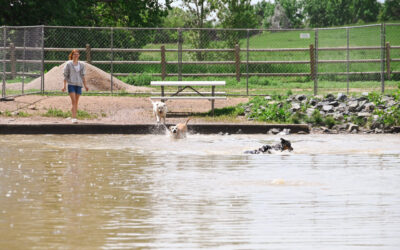Karina Sanchez, a Biological Education Ph.D. candidate at the University of Northern Colorado, has been awarded a $20,000 American Dissertation Fellowship award from the American Association of University Women (AAUW), an organization that promotes education and equity for women and girls.
“I’m really honored to get this award from an organization that’s dedicated in supporting women in academia,” she said. “It’s going to make a huge difference in my final year of working on my dissertation, which will essentially allow me to have a living wage without having to work as a teacher’s assistant so I can more easily concentrate on finishing my work.”
Sanchez’s dissertation involves researching how noise and light pollution and landscape composition in urban settings affects American robins, specifically their bird song. Her faculty advisor is Lauryn Benedict, Ph.D., a professor and the associate director of Biological Sciences at UNC, whose research interests include animal communication and social behavior.
“There’s lots of evidence right now showing that birds are changing their songs to avoid being masked by loud noises in urban areas,” Sanchez said. “We’re seeing changes in their frequency where they’re singing at higher pitches as well as singing in between traffic noises or later in the day due to light pollution.”
 A bird’s song is very specific and can make or break a bird’s ability to get its own territory, the resources in that territory and attract a female.
A bird’s song is very specific and can make or break a bird’s ability to get its own territory, the resources in that territory and attract a female.
“Bird song is very important behavior for them especially for their nest success,” she said.
Sanchez is conducting research in nine growing cities within Weld County: Greeley, Evans, Briggsdale, Windsor, La Salle, Ault, Severance, Windsor and Eaton. She is also working with the U.S. Forest Service to access areas in the Pawnee National Grassland. All previous research on urban ecology and bird songs has been conducted in well-developed cities, such as New York City, Boston, District of Columbia and in the state of California.
“There have been very few studies done in recently urbanized areas that are growing rapidly,” Sanchez said. “This gives us an opportunity to see the amount of time in terms of increased noise and light pollution in a growing urban area it takes before birds start changing their behaviors.”
Sanchez and others venture out in the mornings to record bird songs in those cities, follow the birds to their nests and monitor those nests for the season. In addition, she also traps, tags and releases birds for identification purposes as well as installs noise recorders and light-measuring devices to collect additional data.
Her research is a community science project where she is fully dependent on community members visiting her website, UrbanBirdNerd.com, and submitting nest reports if they find a nest in their yard.






